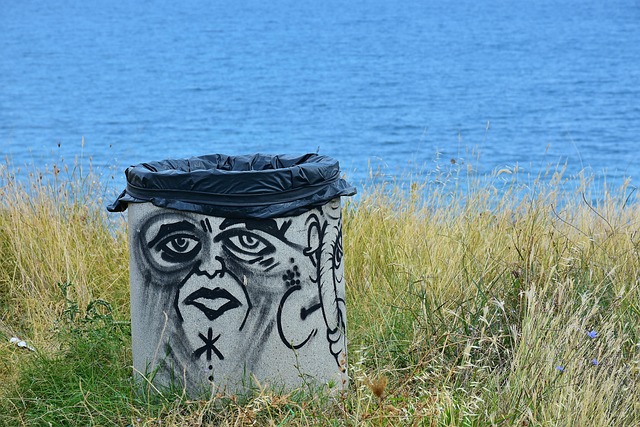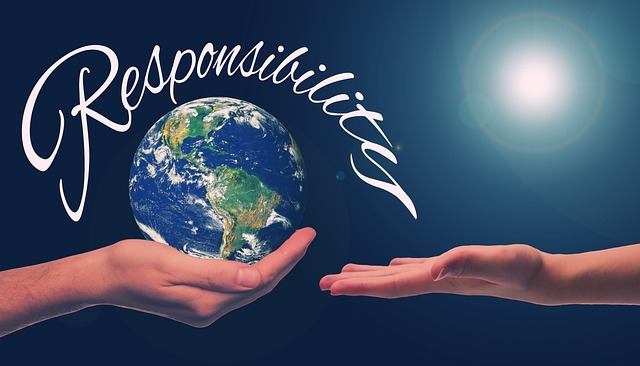Specialized UK Humor and Satire Pieces Translation Services are vital for accurately conveying British comedy globally, preserving cultural nuances, timing, and intent. While machine translation tools have improved, human expertise remains crucial due to the intricate nature of humor. These services ensure UK literature's unique comedic effect resonates with diverse audiences, fostering cross-cultural understanding through laughter.
Humor is a universal language, but translating it for global understanding presents unique challenges. This article explores the art and intricacies of translating humor, focusing on the UK’s distinctive brand of satire and its worldwide appeal. We delve into cultural nuances, language barriers, and the technical considerations that define successful translations. From machine translation to human expertise, discover how professional services navigate these complexities to bring UK humor to a global audience, fostering cross-cultural connections through witty wordplay.
- Understanding Cultural Nuances: The Challenge of Translating Humor
- UK Humor: A Unique Brand of Satire and Its Appeal Globally
- Language Barriers: How They Affect the Interpretation of Witty Content
- The Art of Translation: Preserving Humour Across Languages
- Cultural Context Matters: Adapting UK Satire for International Audiences
- Technical Considerations: Translating Slang, Idioms, and Wordplay
- Machine Translation vs. Human Expertise in Capturing Humor
- Case Studies: Successful Translations of Humorous Text
- The Future of Global Comedy: Accessing a Broader Audience
Understanding Cultural Nuances: The Challenge of Translating Humor

Humor is an integral part of human communication, but translating it across cultures can be a complex task. When it comes to UK humor and satire pieces, understanding cultural nuances is paramount for effective translation. What’s considered funny in one culture might not land well in another due to differences in values, taboos, and sense of humor. For example, puns, wordplay, and subtle references often rely on linguistic and cultural context, making them challenging to translate accurately without losing their comedic intent.
Translation services specializing in UK humor and satire pieces employ linguists who not only excel in language proficiency but also have a deep understanding of British culture and humor. They carefully navigate the intricacies of translating jokes, satires, and comedic sketches, ensuring that the essence of the original piece is preserved. This involves not just word-for-word translation but also adapting content to resonate with a global audience while maintaining its unique flavor.
UK Humor: A Unique Brand of Satire and Its Appeal Globally

UK humor, often characterized by its sharp wit and satirical edge, has long captivated global audiences. This unique brand of comedy finds its roots in British culture, where a refined sense of humor is celebrated. Satire, a powerful tool used in UK humor, plays a significant role in social commentary and political critique, making it both entertaining and thought-provoking. What sets UK humor apart is its ability to blend intelligence with absurdity, creating a style that’s both accessible and appealing across borders.
The global appeal of UK humor lies not only in its clever writing but also in its universal themes. From social norms and political figures to everyday life situations, satirical pieces often reflect experiences shared by people worldwide. Translation services play a vital role in breaking language barriers, allowing these humorous stories and insights to reach audiences far and wide. By offering professional translation for UK humor and satire pieces, cultural bridges are built, fostering understanding and appreciation of this distinctive brand of comedy on an international level.
Language Barriers: How They Affect the Interpretation of Witty Content

Language barriers can significantly impact the understanding and appreciation of humor, especially in the context of UK humor and satire pieces. When witty content is translated into another language, it’s not just about replacing words; it’s about capturing the nuance, cultural references, and comedic timing that make a joke land. For example, puns, which are heavily relied upon in UK humor, often lose their punchline when interpreted in a different linguistic environment. Similarly, satires that rely on double entendres can be misconstrued without a deep understanding of both cultures and languages.
This is where professional translation services come into play, especially for global audiences eager to enjoy UK humor and satire pieces. Expert translators who are native speakers or have a profound grasp of both languages and cultures can help bridge this gap. They not only ensure that the meaning is accurately conveyed but also maintain the essence of the original wit. With their assistance, global readers can fully immerse themselves in the humorous aspects of UK literature, fostering a deeper connection with content that might otherwise remain mysterious or even misunderstood.
The Art of Translation: Preserving Humour Across Languages

The process of translating humor, particularly from UK-based sources like humor and satire pieces, is a delicate art that requires more than just linguistic proficiency. It demands a deep understanding of cultural nuances and subtle comedic timing. When humor crosses language barriers, it often faces a challenging transformation to ensure its original intent and impact remain intact.
Professional translation services specializing in UK humor appreciate the importance of capturing the essence of a joke or satirical piece. They employ translators who not only speak the target languages fluently but also possess a keen sense of humor and cultural awareness. These experts navigate the complexities of literal translations versus conceptual understanding, ensuring that the humor translates seamlessly while respecting cultural sensitivities. By carefully considering wordplay, puns, and cultural references, they enable global audiences to appreciate and enjoy UK-style humor as intended.
Cultural Context Matters: Adapting UK Satire for International Audiences

The translation of humor, especially UK humor and satire, for global understanding requires a deep sensitivity to cultural context. What might be considered hilarious in the UK could fall flat or, worse, offend international audiences due to cultural nuances and references unique to British society. For instance, many UK humor pieces heavily rely on political commentary, local idioms, and regional jokes that may not translate well abroad.
Professional translation services specializing in UK humor and satire play a vital role here. They employ translators who not only excel in language proficiency but also have a keen understanding of British cultural subtleties. These translators adapt the content while preserving its comedic essence, ensuring that international audiences can enjoy and appreciate the humor without losing the original intent and impact. This adaptation process involves careful consideration of cultural references, puns, and wordplay to create an equivalent level of amusement for global viewers.
Technical Considerations: Translating Slang, Idioms, and Wordplay

Humor is an essential aspect of many cultures, especially in the UK where satire and wit are deeply ingrained in their literary and comedic traditions. When translating humor for a global audience, one of the biggest challenges lies in capturing the essence of slang, idioms, and wordplay, which often lose their impact across language barriers. These elements are integral to understanding UK humor and satire pieces, making specialized translation services crucial.
Professional translators must possess a keen sense of cultural awareness and a strong grasp of both the source and target languages. They need to be adept at finding equivalent expressions or creative alternatives that maintain the comedic timing and intent. For instance, translating British idioms like “it’s raining cats and dogs” directly into another language might not convey the same lighthearted humor. Translators should aim to preserve the playful nature of such phrases while ensuring cultural relevance for readers worldwide. UK Humor and Satire Pieces Translation Services that excel in these areas play a vital role in helping global audiences enjoy and comprehend the unique brand of humor these literary works offer.
Machine Translation vs. Human Expertise in Capturing Humor

Machine translation tools have made remarkable strides in recent years, but when it comes to translating humor—especially nuanced UK humor and satire pieces—human expertise remains invaluable. While algorithms can handle basic word-for-word translations, they often struggle with cultural references, irony, and subtle comedic timing that are integral to humor.
Human translators who understand the UK’s rich comedic heritage and its unique style of humor can capture these intricacies more effectively. They bring a level of creativity and contextual understanding that machine translation simply cannot replicate. This is particularly crucial when translating UK humor and satire pieces for global audiences, ensuring that the intended comedic effect is not lost or misconstrued.
Case Studies: Successful Translations of Humorous Text

Successful translations of humorous text, particularly from UK humor and satire pieces, offer fascinating insights into cultural nuances and linguistic play. For instance, a study of translating Monty Python sketches revealed that while many lines could be directly translated, others demanded creative adaptation to convey the intended comedic effect in different languages. The translation team had to consider not just word-to-word equivalencies but also cultural references, puns, and wordplay that might fall flat or make no sense in other languages.
UK humor often relies on self-deprecating wit, dark irony, and absurdity, which can be challenging to render accurately. A notable example is the translation of satirical news articles from British publications. Translators must capture the tone, timing, and subtle nuances that make these pieces funny while ensuring that cultural in-jokes and references remain accessible or at least understandable for global audiences. By studying these case scenarios, translation services can develop strategies to handle humor more effectively, bridging cultural gaps and enhancing cross-cultural understanding through laughter.
The Future of Global Comedy: Accessing a Broader Audience

In today’s interconnected world, the future of global comedy lies in breaking down cultural barriers through translation services. UK humor and satire pieces, known for their witty edge and unique cultural nuances, can reach a broader international audience with the help of specialized translation experts. By making these comedic works accessible worldwide, we open doors to cross-cultural understanding and appreciation of diverse forms of humor.
Translation goes beyond words; it captures the essence and tone of a piece, ensuring that the laughter and clever wit resonate across languages and cultures. This opens up new possibilities for comedians and writers to share their art with folks from all corners of the globe, fostering connections and bridging cultural gaps through the universal language of humor.
The global appreciation of UK humor and satire highlights the potential for successful translations that transcend language barriers. By understanding cultural nuances, employing expert translation services, and adapting content for diverse audiences, it’s possible to preserve the essence of witty texts. As we look towards the future, recognizing the importance of accessibility in the realm of comedy, specialized translation services play a pivotal role in making UK humor accessible to a broader, international audience.



